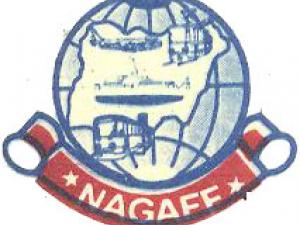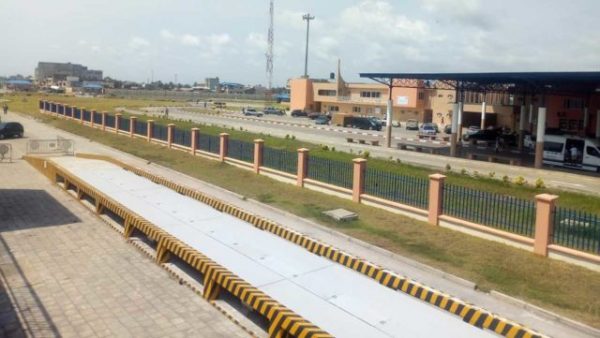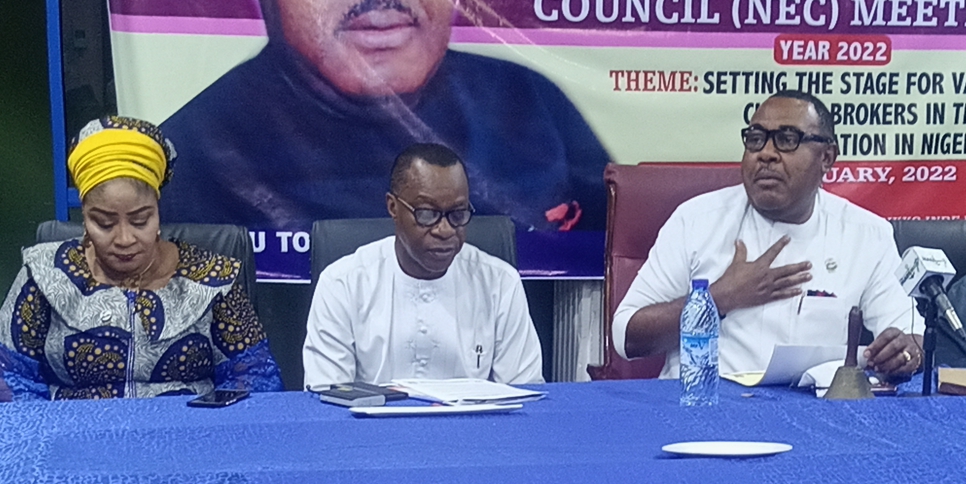NAGAFF Calls On President Buhari Over Influx Of Fake Products
The National Association of Government Approved Freight Forwarders (NAGAFF) has called the attention of President Buhari to the menace of fake, adulterated and substandard goods, which has continued to bring untold hardship, resulting to accidents, sickness and death of many Nigerians.
The Association made this call in an open letter to the President, lamenting that it was disheartening to hear reports of avoidable catastrophe befalling Nigerians as a result of fake, adulterated, or substandard products, either in terms of consumables or material and or structures.
While acknowledging the efforts of Government in checking this trend through the setting up of regulatory agencies like Nigerian Customs Service (NCS), Nigerian Shippers Council (NSC), National Agency for Food and Drug Administration and Control (NAFDAC), Standards Organization of Nigerian (SON), Nigeria Quarantine Service etc, to safeguard the health and well being of the people, NAGAFF maintained that fake and substandard products still flood Nigerian markets in spite of the existence of these regulatory agencies.
The Association posited that the major reason for the anomaly was that the agencies place more emphasis on revenue generation, above their regulatory roles, defined by the need to ensure quality and ensure the health and safety of consumers who are mainly Nigerians.
“We have gone through the relevant statutes establishing these Agencies, and it is our opinion that if these laws are efficiently and effectively enforced, it would go a long way in discouraging the flouting of laws aimed at checking the influx of fake, adulterated and substandard goods into our markets” the report read.
NAGAFF also noted that the laws establishing these agencies made them primarily service oriented to protect lives and properties of the people, but this seems to have been relegated to the background, as the agencies now compete with revenue generating agencies of government in a bid to generate more and stay relevant.
“There is also the propensity of some Nigerians to always try to circumvent the law to their advantage and ironically, these officials have been alleged to compromise by collecting bribes from the people they are expected to regulate, and look the other way when the laws are breached”
“Another reason for the influx of such goods is the unstable policies of government which leaves the officials of the agencies and trading public confused. It is on record that about two years ago most of the regulatory agencies of the government were asked to vacate the ports and operate from outside. However, they returned back to the ports unjustifiably” the report stated.
In a separate report, NAGAFF shot back at Mr. Lucky Eyis Amiwero for disagreeing with the Managing Director of Nigeria Ports Authority (NPA) Habib Abdullahi. Amiwero had posited that the repair of the ports access roads was the responsibility of the NPA.
NAGAFF stressed that Amewiro only exposed his ignorance by diving into a subject he didn’t understand.
According to NAGAFF, Section 127 of the NPA act clearly defines Approach to mean any navigable channel declared to be an approach to a port as contained in section 30 of the same Act. Contrary to Mr. Amiwero’s understanding, approach in shipping terms has nothing to do with road linkages to the ports, but only openings connecting to the sea leading to the ports for ocean going vessels.
Following Amewiro’s recent conjecture that NAGAFF and ARREFF were not supposed to be members of the Governing Council of the CRFFN, NAGAFF also informed Mr. Amiwero that the membership of the Governing Council of the CRFFN was based on the existing register of Freight forwarders.
“He needs to be informed that incorrigible people like him do not have the locus standi to discuss or raise issues concerning the Council as he is not a Freight forwarder. Reliable information reaching us indicates that the seeming reason he is shying away from registering with the Council is because of his limited knowledge and scope of who a freight forwarder is” the report read.








